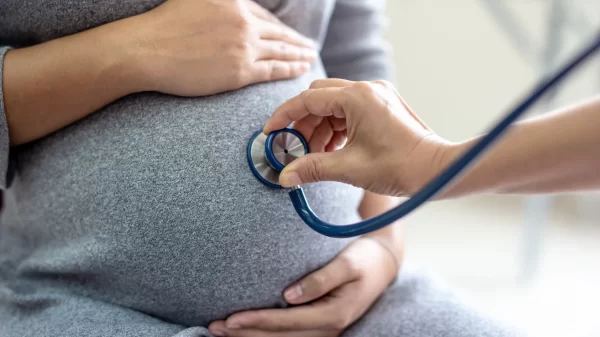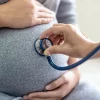By Brandon Moseley
Alabama Political Reporter
On Tuesday, September 30, the U.S. Centers for Disease Control and Prevention (CDC) confirmed that a man who was hospitalized on Friday in Dallas is the first case of Ebola conclusively diagnosed in the United States.
According to a statement by the CDC, Ebola symptoms can include fever, muscle pain, vomiting and bleeding, and can appear as long as 21 days after exposure to the virus.
CDC spokesman Jason McDonald said health officials use two primary guidelines when deciding whether to test a person for the virus. McDonald said, “The first and foremost determinant is have they traveled to the region (of West Africa). The second is whether there’s been proximity to family, friends or others who’ve been exposed.”
Centers for Disease Control and Prevention Director Dr. Tom Frieden said that they, “don’t believe there is any risk to anyone who was on the flight at that time.”
Der. Frieden said that the patient came to the U.S. from Liberia to visit family and arrived on Sept. 20. The patient sought care Friday and has been hospitalized in isolation since the weekend.
State health officials say no other cases are suspected at this time in Texas. The traveler from Liberia in Africa is the 13th person that the CDC has tested for the disease in the United States. The previous 12 tested negative.
Texas Health Presbyterian Hospital of Dallas officials said that the patient was placed, “in strict isolation” due to the symptoms and the fact that the traveler had come from West Africa where Ebola is raging in an epidemic on the largest scale in history.
According to the CDC in conjunction with the World Health Organization (WHO) as of September 29, 2014 there have been 6574 cases of suspected Ebola. 3626 of those cases have been confirmed by laboratory analysis. 3091 of the patients have died to this point.
In Guinea there have been 1074 suspected cases, 876 have been confirmed by lab work, and 648 people have died. In Liberia there have been 3458 suspected cases. Only 914 have been confirmed by laboratory analysis, but 1830 of those people are now dead. In Nigeria there have been 20 suspect cases, 19 of those were confirmed in the lab, and 8 have died. The Nigerian cases are believed to all be traceable to a traveler from Liberia. In Senegal there has only been one confirmed case but no deaths. The Senegal patient is a man from Guinea. In Sierra Leone there have been 2021 possible cases, 1816 of those have been confirmed, and 605 people are dead.
The Democratic Republic of the Congo (DRC) has reported cases of Ebola, but the CDC reports that these cases are not related to the ongoing outbreak of Ebola in West Africa and are not included in the totals.
The U.S. Department of Health and Human Services (HHS) has contracted with Mapp Biopharmaceutical Inc. to develop and manufacture ZMapp. Mapp Biopharmaceutical will manufacture a small amount of the drug for early stage clinical safety studies and nonclinical studies.
The National Institute of Health (NIH) will begin initial human testing of an investigational vaccine to prevent EVD in early September and is working with a company to develop an antiviral drug to treat Ebola.
The U.S. Department of Defense has funded two companies which are developing drug therapies for Ebola and is working with another company to develop an Ebola vaccine.
This Ebola outbreak is the largest in history and the first Ebola epidemic the world has ever known —affecting multiple countries in West Africa.
Although there is presently an infected man in a hospital in Dallas the CDC believes that the risk of an Ebola outbreak in the United States is still very low.
Presbyterian Hospital says that it is taking measures to keep its doctors, staff and patients safe.
Four American aid workers became infected while volunteering in West Africa. They have been treated in special isolation facilities in hospitals in Atlanta and Nebraska, and a U.S. doctor exposed to the virus in Sierra Leone is under observation in a similar facility at the National Institutes of Health.
There are only four such isolation units in the entire country but the CDC insists that any hospital can safely care for someone with Ebola.
The U.S. military now has forces on the ground in Liberia as part of an effort to fight the further spread of the deadly virus. Army Major General Darryl A. Williams, who commands the U.S. Army Africa Command, is now in Liberia with a team of U.S. military personnel that began arriving on Friday, September 19.
Pentagon Spokesman Admiral Kirby said that the U.S. military personnel will need in terms of support infrastructure to sustain operations for up to six months, “or however long U.S. military assistance is required” in West Africa.
Kirby said that DoD has requested to reprogram two rounds of $500 million each in fiscal year 2014 overseas contingency funds to provide urgent humanitarian assistance to fight Ebola and is prepared to devote up to $1 billion to its Ebola response efforts.
Kirby said that there, “Is no intention right now that [deployed troops] will interact with patients or be in areas where they would necessarily come into contact with patients.” “They’re not doctors. They’re not nurses. They’re not trained for that and not equipped for that. That’s not part of the mission. They will be kept in locations where they can do their jobs without coming into contact with patients.” The troops will be acting in support of health care workers.
Admiral Kirby said, “The disease itself is the threat. We understand that. We get paid to deal in risk and to manage that and to mitigate it the best we can. It’s difficult in any military operation to eliminate it, and the men and women who sign up and serve in the military understand that when they do.”
Operation United Assistance is being led by the U.S. Agency for International Development, the State Department and the Liberian government not the U.S. Military.
Anticipating the threat, on Thursday, August 8 the Alabama Department of Public Health issued a message to primary care providers in Alabama to report any suspected Ebola cases and to collect specimens from any suspected patients for testing.
Ebola is characterized by sudden onset of fever and weakness that may be accompanied by other symptoms including headache, joint and muscle aches, vomiting, and diarrhea, stomach pain and lack of appetite.
The Ebola virus can be transmitted to others from: direct contact with the blood or secretions of an infected person or exposure to objects (such as needles) that have been contaminated with infected secretions.
The state of Alabama is warning residents to avoid nonessential travel to Liberia, Guinea, Sierra Leone and Nigeria.
If you must travel to places where Ebola is a danger, the state urges that you make sure to do the following: practice careful hygiene and avoid contact with blood and body fluids; do not handle items that may have come in contact with an infected person’s blood or body fluids; avoid funeral or burial rituals that require handling the body of someone who has died from Ebola; avoid contact with animals or with raw meat; avoid hospitals where Ebola patients are being treated. The U.S. Embassy or consulate is often able to provide advice on facilities that are suitable for your needs; seek medical care immediately if you develop fever, headache, achiness, sore throat, diarrhea, vomiting, stomach pain, rash or red eyes; limit your contact with other people when you travel to the doctor. Do not travel anywhere else; pay attention to your health after you return from your Africa excursion; monitor your health for 21 days if you were in an area with an Ebola outbreak, especially if you ignored any of the earlier rules; and tell the doctor about your recent travel and your symptoms before you go to the office or emergency room in order to help the doctor care for you and protect other people who may be in the office.
The Alabama Department of Public Health is warning health care workers that if they become exposed to people who might have the disease they should: wear protective clothing, including masks, gloves, gowns and eye protection; practice proper infection control and sterilization measures; isolate Ebola patients from unprotected people; avoid direct contact with the bodies of people who have died from Ebola; and notify health officials if you have been exposed to someone with Ebola. For more information, see “Infection Control for Viral Hemorrhagic Fevers in the African Health Care Setting.”
The State is urging healthcare providers that all persons with onset of fever within 21 days of high-risk exposure be tested for the African disease.
This report is based on information from the CDC, the U.S. Department of Defense, the Alabama Department of Public Health, and includes some information from recent reporting by both Fox News and the Associated Press.






















































